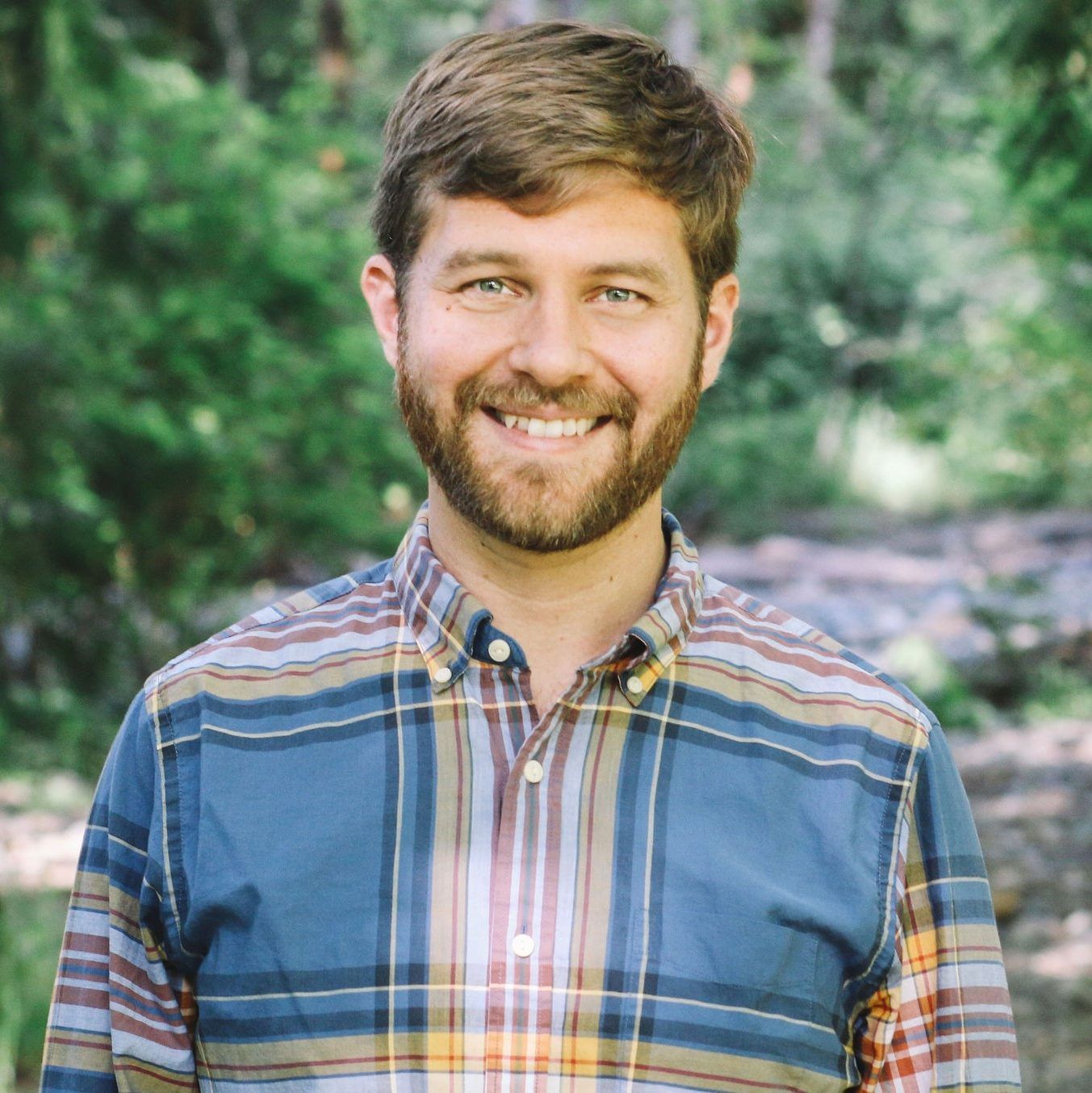Do You Hear What I Hear?
Dec 2
/
Drew Dixon

Do You Hear What I Hear?
‘Tis the season for decorations, blowout sales, and red cups (as pumpkin spice lattes give way to peppermint mochas). Amid all this, stores and commercials press play on the many well-known earworms of carols and jingles. One of those songs contains the refrain: Do you hear what I hear? My answer: “No. Not unless you’re referring to the chaotic clamor of Christmas cacophony.”
Our cultural season of Christmas is noisy, to say the least. But alongside it, throughout the month of December, is the sacred season of Advent, which carries with it an altogether different invitation—to watch, wait, and listen.
Back to that song. It begins with evocative questions from unlikely sources, “Said the night wind to the little lamb, ‘Do you see what I see?’ …Said the little lamb to the shepherd boy, ‘Do you hear what I hear?’” Quite distinct from the jangle of jingling bells—what is it like to listen to the subtle voices of the night wind and the little lamb? This is the invitation of Advent.
***
I’ve always been amazed at Jesus' response to the question, “What is most important?”
One of the teachers of the law came and heard them debating. Noticing that Jesus had given them a good answer, he asked him, “Of all the commandments, which is the most important?” “The most important one,” answered Jesus, “is this: ‘Hear, O Israel: The Lord our God, the Lord is one.’” (Mark 12:28-29 NIV)
What is most important? Jesus’ answer begins with the word “Hear.” Another translation renders it, “Listen.” The most important thing begins with hearing—with listening.
Throughout his ministry, Jesus told stories of seeds sown, sheep found, birds fed, and flowers clothed. He was one familiar with the quiet voices of winds and lambs. After telling many of these stories, he often concludes with the statement, “Whoever has ears, let them hear.” It is as if Jesus himself is asking the question, Do you hear what I hear?
***
How might we tune our ears to the deeper, more subtle frequencies of the divine? Here are two suggestions to engage:
Silence
Silence may seem like a great enemy in our age of notifications and nonstop streaming, but I love the line from Shirley Murray’s hymn, Come and Find the Quiet Center, which professes, “Silence is a friend who claims us…” Silence may be an enemy to our noise-addicted world, but it is a dear friend to those who desire “ears to hear.”
Silence is the canvas on which we practice the art of listening. Like a palette cleanser is to the tongue, so silence is to the ears. Where might you find moments for silence within your days? Perhaps you have space to be quiet and still for a moment in the mornings. If not, perhaps you can find ways to resist some of the noise that so easily enters. Simply not turning the TV on this evening or choosing not to switch on the radio or music playlist while you drive is one way to practice silence.
The practice of silence is distinct from “me time.” It is not self-care as much as soul-care, nourishing and nurturing the soul beyond itself. Henri Nouwen writes about the desert father, Saint Anthony, who encountered silence and solitude throughout many wilderness years: “The solitude that at first had required physical isolation had now become a quality of his heart, an inner disposition that could no longer be disturbed by those who needed his guidance. Somehow his solitude had become an infinite space into which anyone could be invited.” (The Way of the Heart)
Through ongoing practice, silence shifts from an absence of noise to the presence of attention—something which can be offered and extended wherever we go with ears ready to hear.
Story
In fourth grade, my class would gather around the rocking chair in the corner of the classroom every afternoon for about half an hour—sometimes even longer—to listen to our teacher read. We heard classics from Beverly Cleary with Ramona Quimby and Henry Huggins. We heard the first Harry Potter book, which had recently become all the rage. Throughout the year, we encountered many different experiences and places—all we had to do was listen.
Stories have a way of teaching us to listen and live differently. We live by stories that go far deeper than cognition—they live in our bodies. These stories are scripts that we act out time and again, often without even knowing it. Stories of fear, shame, power, and greed proliferate our day-to-day experiences. These stories build up over time, and the internal noise they create can hinder our hearing. To be restored, we need to be re-storied.
Encountering new stories, others’ stories, and the Sacred Story are ways of listening afresh. Novels and short stories can invite us into whole new worlds; curious conversations can invite us into deeper presence with others; and regularly immersing ourselves in the story of Jesus invites us into the truest, deepest reality. What stories do you listen to and live by? How do these stories shape you? Are there new stories you might enter into and engage in this season? I commend the classic The Lion, the Witch, and the Wardrobe for this winter season. Or returning once more to the epic song-infused narrative of Luke 1-2. Or perhaps simply sitting with a beloved friend or family member to listen afresh to their story without assumptions or judgments. Read and reflect on any of these in community, then turn to ask one another, “Do you hear what I hear?”
***
Perhaps the season we’ve entered has an invitation beyond the noise. Perhaps night winds and little lambs are whispering among us if we have ears to hear.
The later refrains of Do You Hear What I Hear? depict a divine gift exchange: “Let us bring him silver and gold… He will bring us goodness and light.” Silence and story are ways we can offer our own silver and gold. And they can become places where we receive God’s goodness and light.
As we enter Advent, let us wait, let us watch, let us listen. Do you hear what I hear?
Recommended: https://www.youtube.com/watch?v=eBBRuTjd6mE
Silence is the canvas on which we practice the art of listening. Like a palette cleanser is to the tongue, so silence is to the ears. Where might you find moments for silence within your days? Perhaps you have space to be quiet and still for a moment in the mornings. If not, perhaps you can find ways to resist some of the noise that so easily enters. Simply not turning the TV on this evening or choosing not to switch on the radio or music playlist while you drive is one way to practice silence.
The practice of silence is distinct from “me time.” It is not self-care as much as soul-care, nourishing and nurturing the soul beyond itself. Henri Nouwen writes about the desert father, Saint Anthony, who encountered silence and solitude throughout many wilderness years: “The solitude that at first had required physical isolation had now become a quality of his heart, an inner disposition that could no longer be disturbed by those who needed his guidance. Somehow his solitude had become an infinite space into which anyone could be invited.” (The Way of the Heart)
Through ongoing practice, silence shifts from an absence of noise to the presence of attention—something which can be offered and extended wherever we go with ears ready to hear.
Story
In fourth grade, my class would gather around the rocking chair in the corner of the classroom every afternoon for about half an hour—sometimes even longer—to listen to our teacher read. We heard classics from Beverly Cleary with Ramona Quimby and Henry Huggins. We heard the first Harry Potter book, which had recently become all the rage. Throughout the year, we encountered many different experiences and places—all we had to do was listen.
Stories have a way of teaching us to listen and live differently. We live by stories that go far deeper than cognition—they live in our bodies. These stories are scripts that we act out time and again, often without even knowing it. Stories of fear, shame, power, and greed proliferate our day-to-day experiences. These stories build up over time, and the internal noise they create can hinder our hearing. To be restored, we need to be re-storied.
Encountering new stories, others’ stories, and the Sacred Story are ways of listening afresh. Novels and short stories can invite us into whole new worlds; curious conversations can invite us into deeper presence with others; and regularly immersing ourselves in the story of Jesus invites us into the truest, deepest reality. What stories do you listen to and live by? How do these stories shape you? Are there new stories you might enter into and engage in this season? I commend the classic The Lion, the Witch, and the Wardrobe for this winter season. Or returning once more to the epic song-infused narrative of Luke 1-2. Or perhaps simply sitting with a beloved friend or family member to listen afresh to their story without assumptions or judgments. Read and reflect on any of these in community, then turn to ask one another, “Do you hear what I hear?”
***
Perhaps the season we’ve entered has an invitation beyond the noise. Perhaps night winds and little lambs are whispering among us if we have ears to hear.
The later refrains of Do You Hear What I Hear? depict a divine gift exchange: “Let us bring him silver and gold… He will bring us goodness and light.” Silence and story are ways we can offer our own silver and gold. And they can become places where we receive God’s goodness and light.
As we enter Advent, let us wait, let us watch, let us listen. Do you hear what I hear?
Recommended: https://www.youtube.com/watch?v=eBBRuTjd6mE

Drew Dixon
Drew Dixon is a minister and spiritual director in Auburn, WA who longs to serve and support people in the way of Christ through teaching, spiritual formation, and pastoral care.
Drew currently serves at the Federal Way Church of Christ where he regularly preaches, creates spiritual resources, and provides care to the congregation. He also facilitates listening spaces for individuals and community through individual and group spiritual direction and as a coordinator with Renovaré’s Fellowship of the Burning Heart.
During his downtime, Drew enjoys slow mornings, scenic walks, deep conversations, watching films, reading fantasy, history, and spiritual writings, and spending time with his wife, Katelyn.
You can learn more about him on his website at https://drewldixon.com/
Drew Dixon is a minister and spiritual director in Auburn, WA who longs to serve and support people in the way of Christ through teaching, spiritual formation, and pastoral care.
Drew currently serves at the Federal Way Church of Christ where he regularly preaches, creates spiritual resources, and provides care to the congregation. He also facilitates listening spaces for individuals and community through individual and group spiritual direction and as a coordinator with Renovaré’s Fellowship of the Burning Heart.
During his downtime, Drew enjoys slow mornings, scenic walks, deep conversations, watching films, reading fantasy, history, and spiritual writings, and spending time with his wife, Katelyn.
You can learn more about him on his website at https://drewldixon.com/

